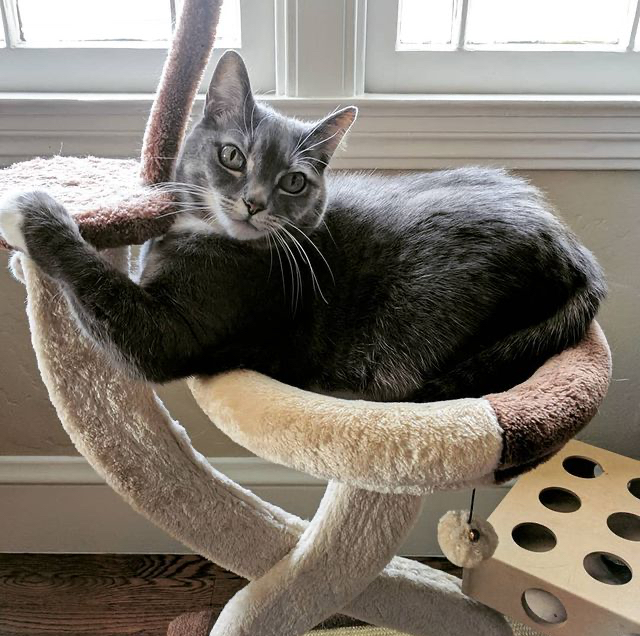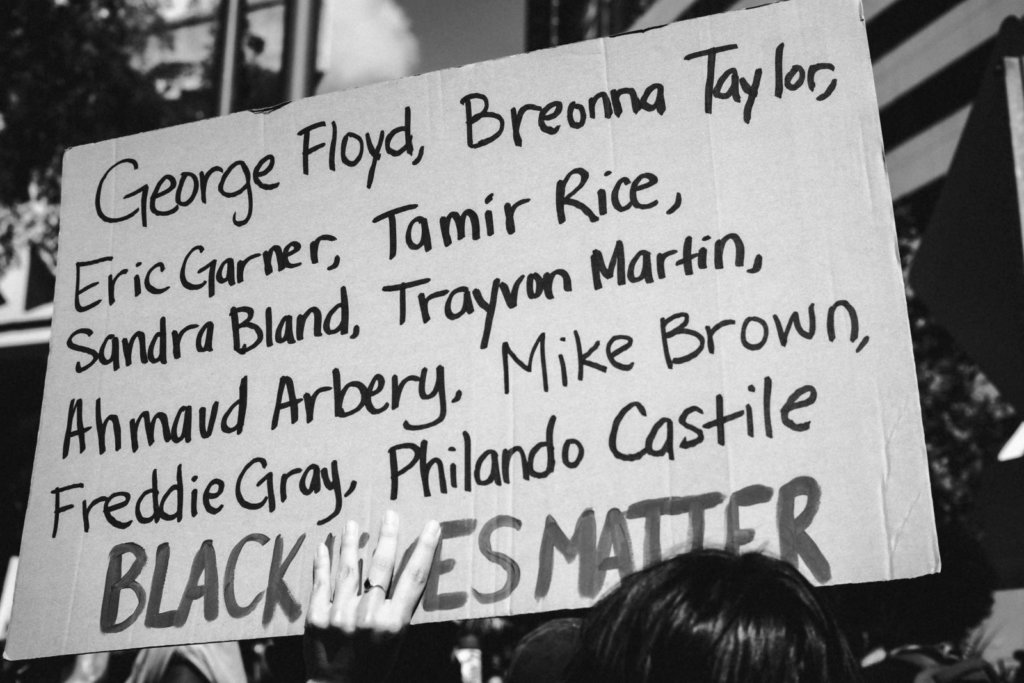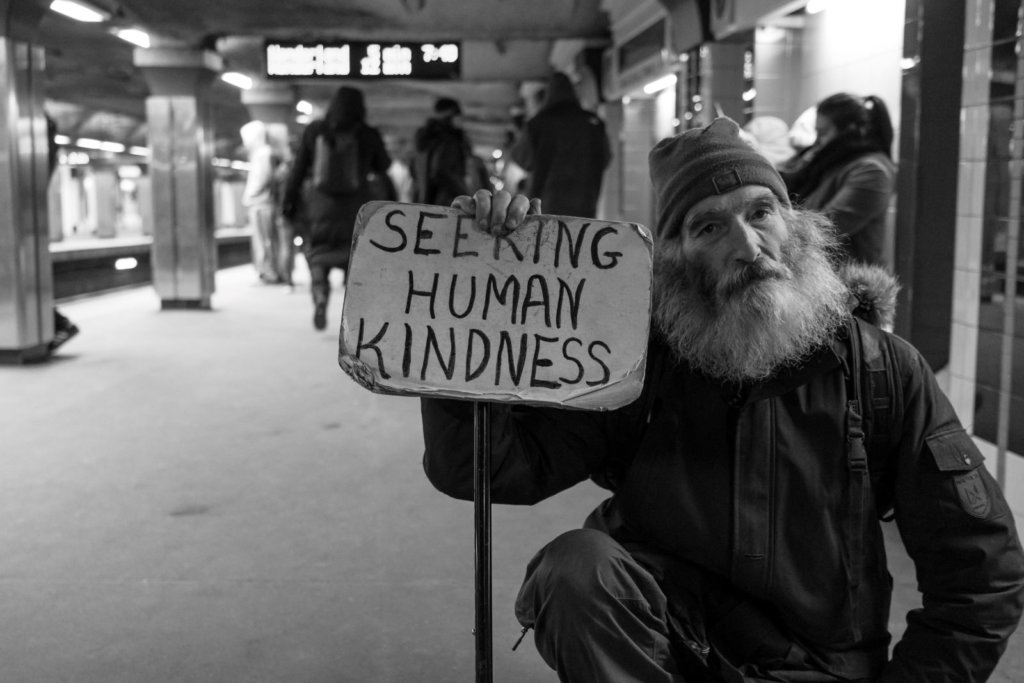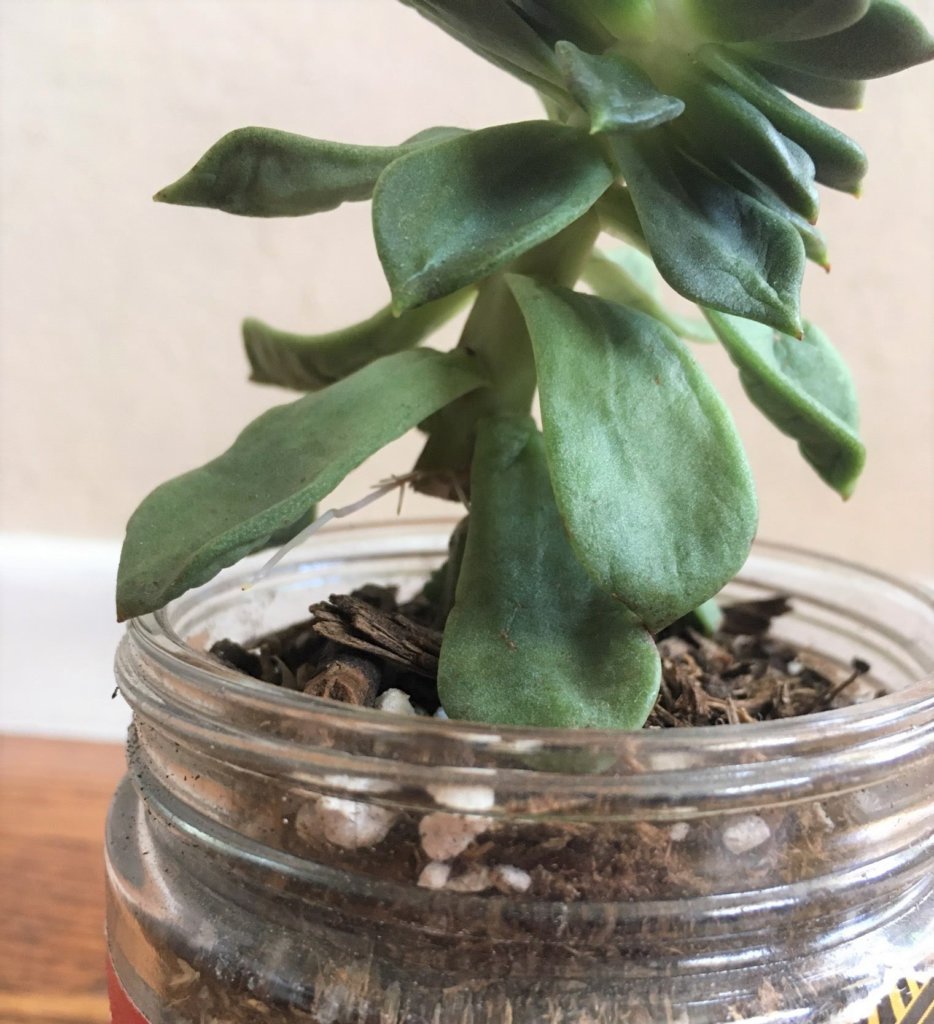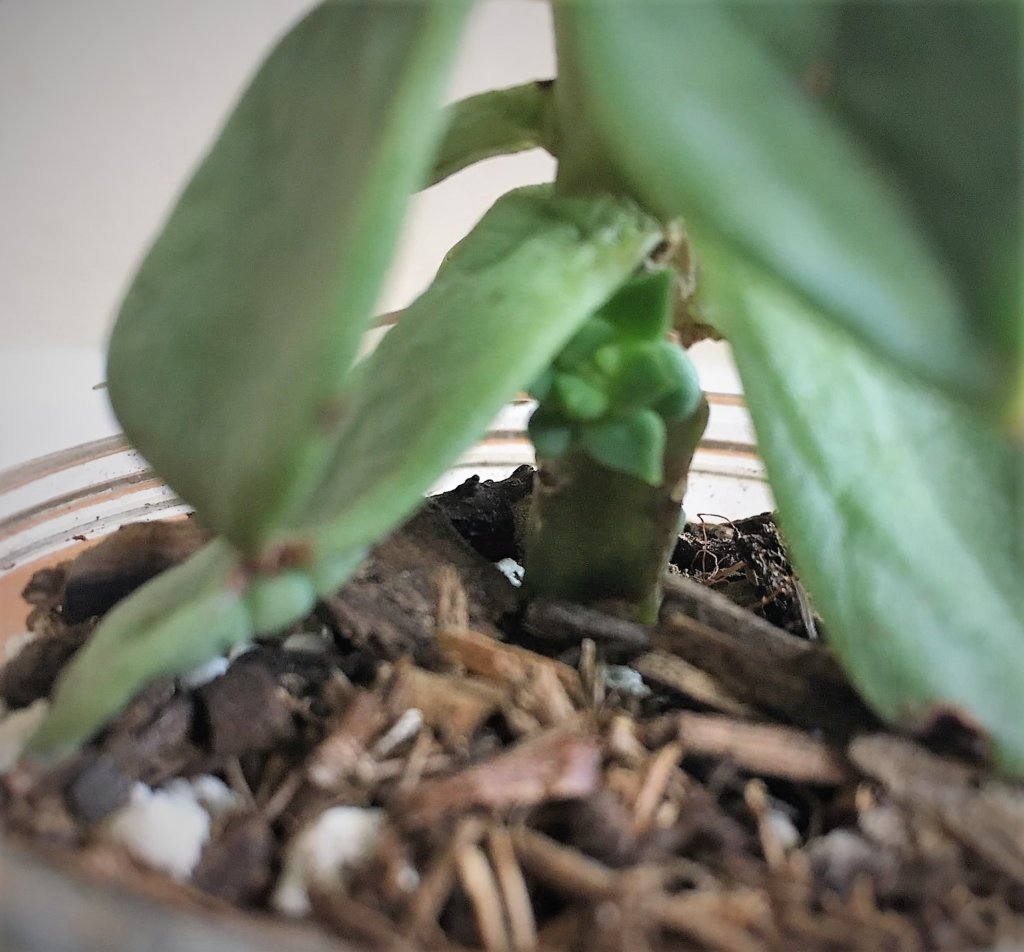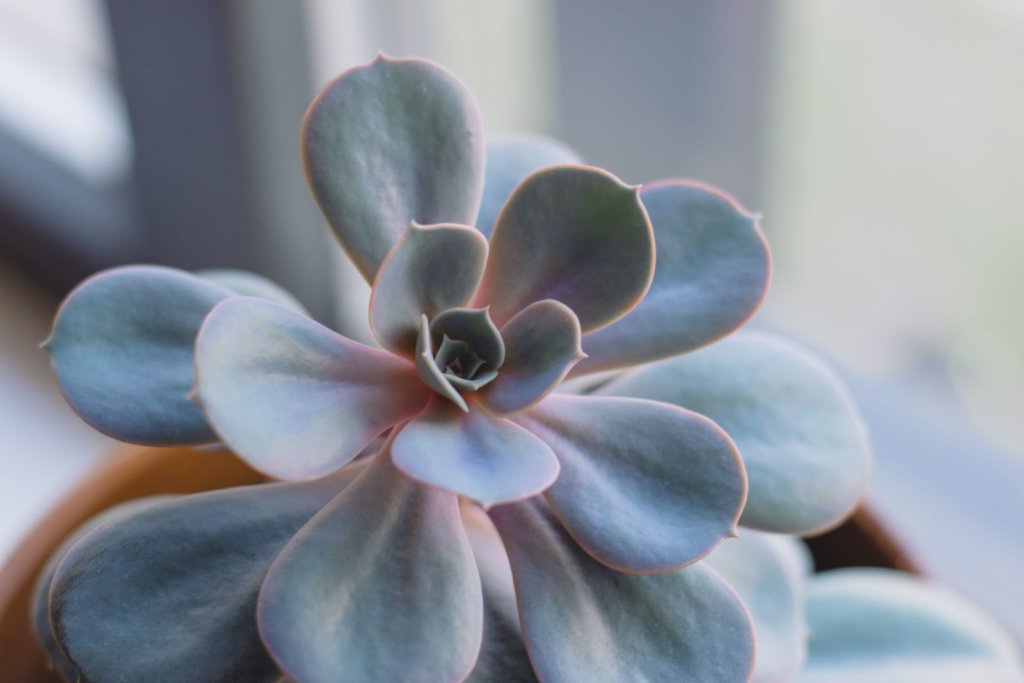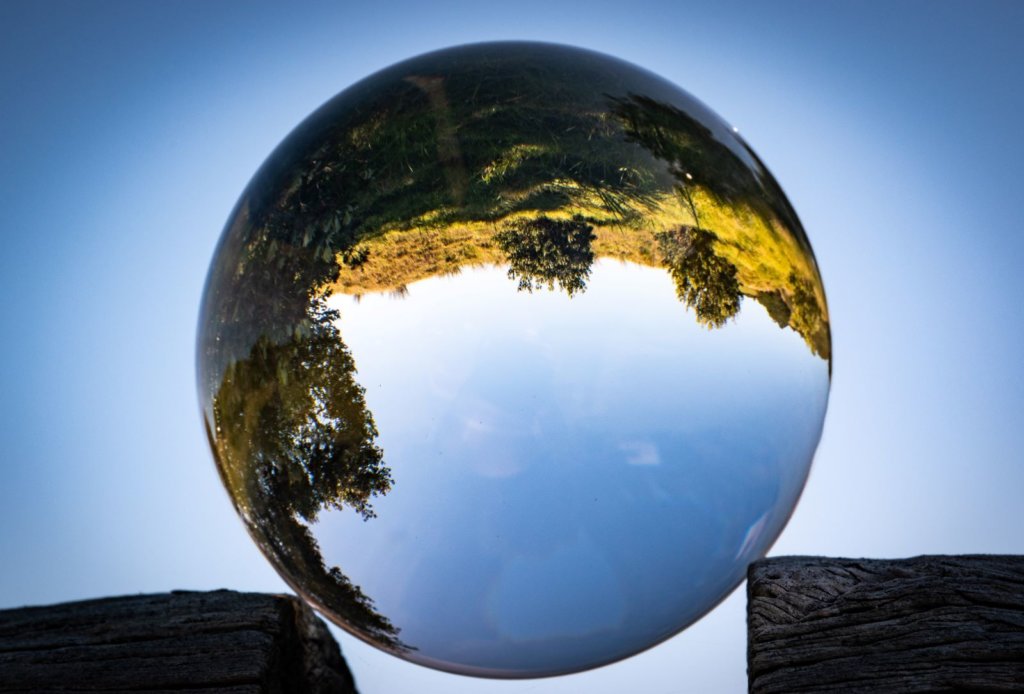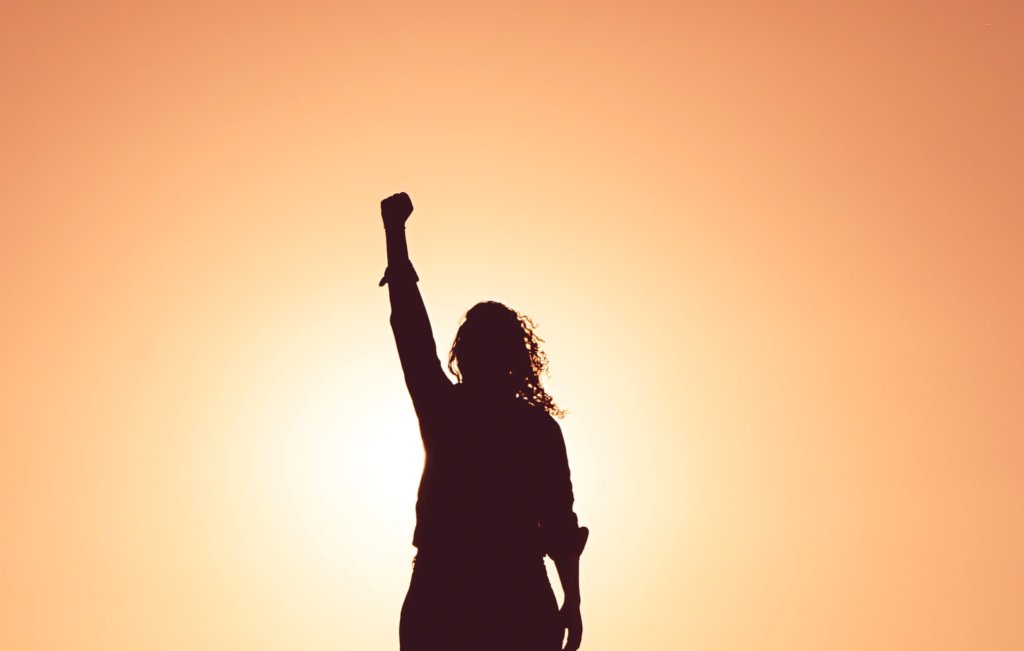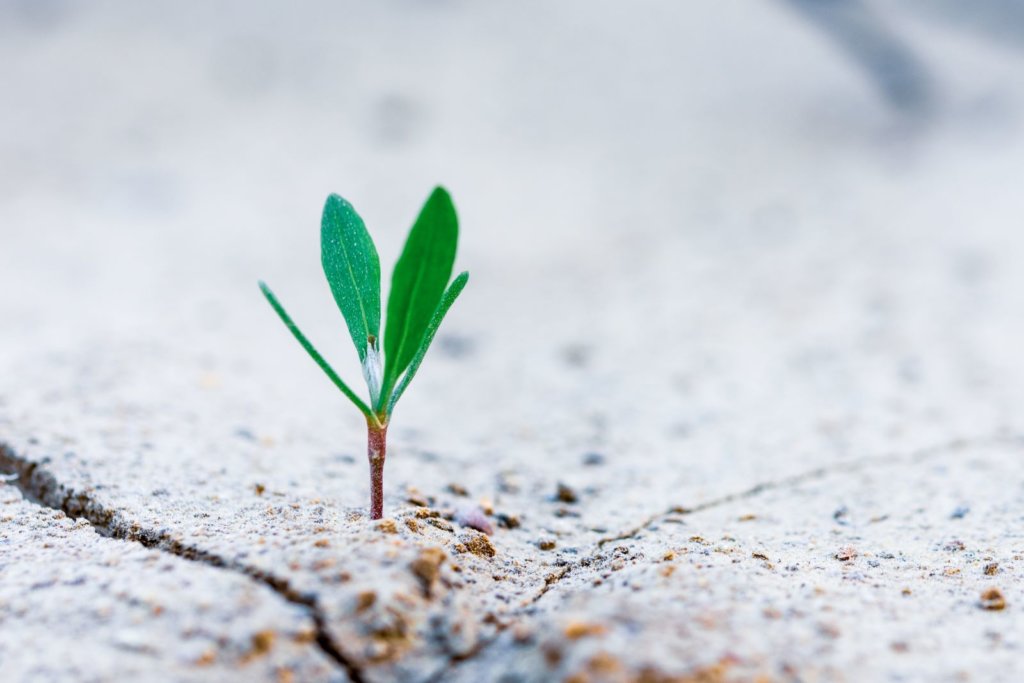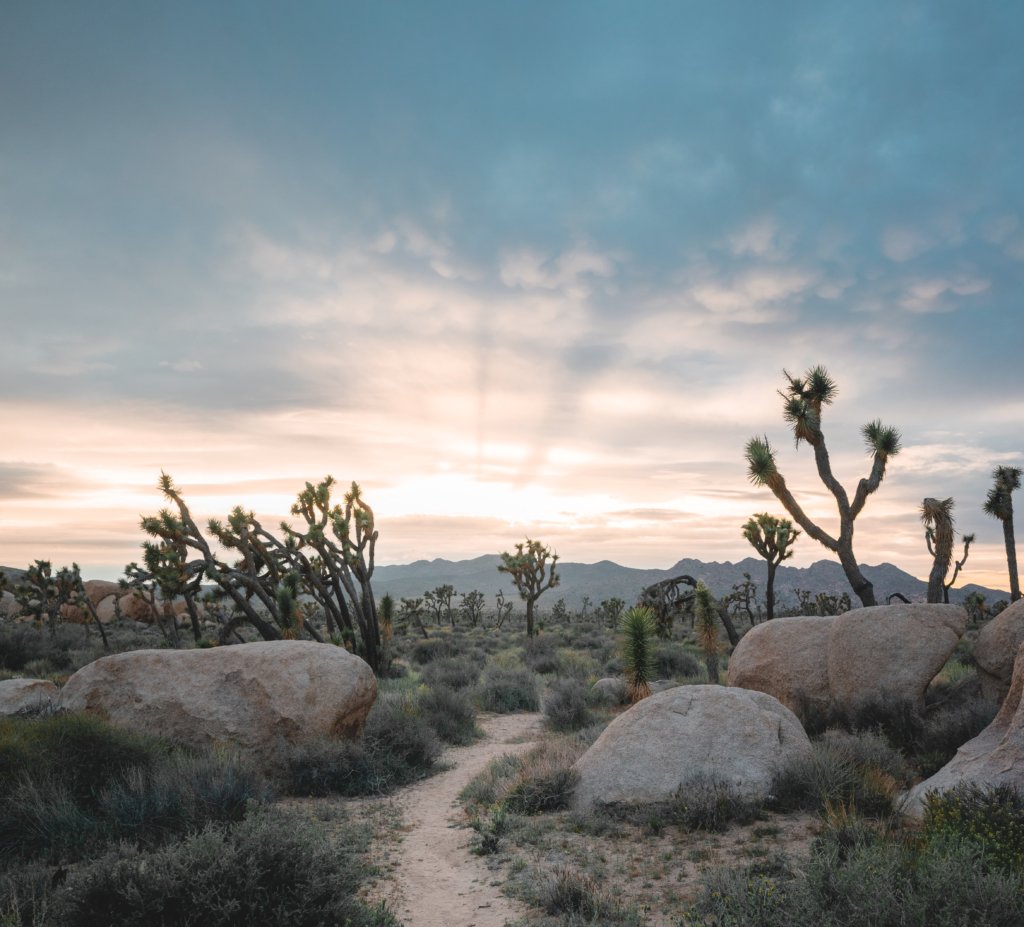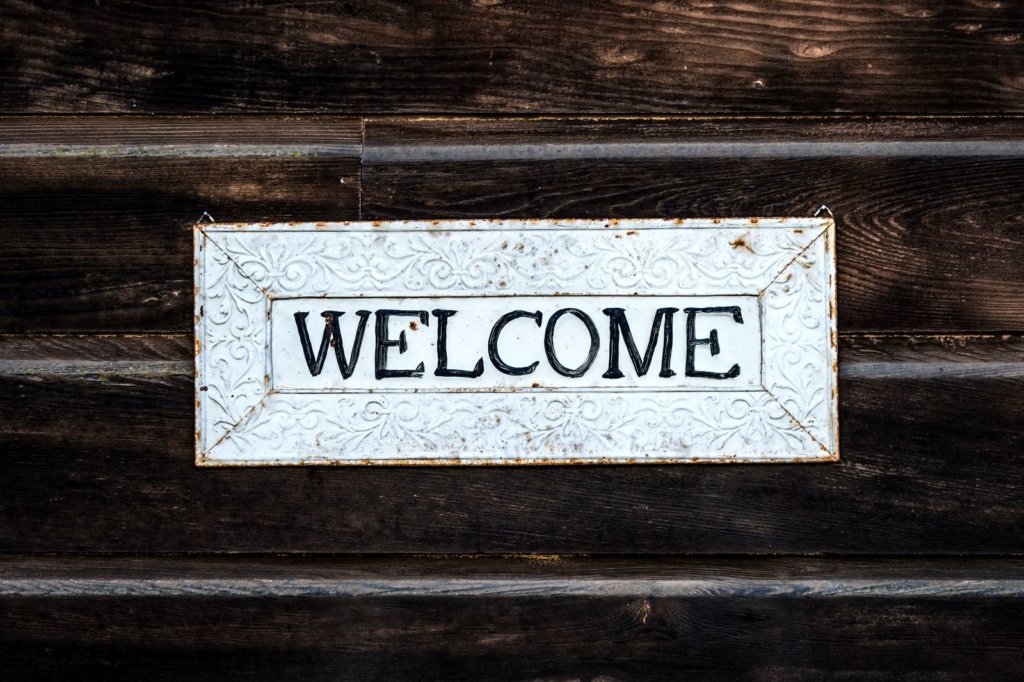This weekend I had a small taste of what other people have been experiencing for the past year with this pandemic. Serenity, a cat I love and the closest I’ve come to a pet since I moved out of my parents’ house, died. Under normal circumstances, I would have been able to say goodbye to her in person but because of the pandemic, I said goodbye over Facetime.
I’m grateful I had the opportunity to say goodbye at all, but I would have much rather been able to pet her one last time. There are numerous crappy things about this pandemic but the worst, emotionally speaking, is the feeling of being alone. We already know this because we’ve experienced it ourselves, and I’m sure you’ve seen the news articles about the increase in mental health issues such as depression and anxiety during this pandemic. Grief is also something meant to be shared, and ideally in person. Online memorials and the like are better than nothing, but they’re not the same as in-person events.
I keep thinking about an article I read in the Atlantic nearly a month ago detailing Bhutan’s experience during this pandemic. It has me wondering, what would life be like in the U.S. if we followed Bhutan’s example? Would I have been able to say goodbye to Serenity in person?
As of late February, Bhutan only had one death from COVID-19. Not one death that day or week, one death period. Madeline Drexler writes nations like Bhutan, because there are others with low death rates, “offer plenty of lessons, from the importance of attentive leadership, the need to ensure that people have enough provisions and financial means to follow public-health guidance, and the shared understanding that individuals and communities must sacrifice to protect the well-being of all: elements that have been sorely lacking in the U.S.”
However, what struck me the most about the article is that the country made it possible for people to follow public-health guidance by providing economic and social support to those who need to quarantine or isolate. And furthermore, the king of Bhutan explicitly told government leaders that “even one death from COVID-19 would be too much for a small nation that regards itself as a family,” Drexler wrote.
Look, I know Bhutan is smaller than the U.S., that the politics are different, etc., but what would it feel like to have a sense we’re all in this together instead of every person being out for themselves? If the government just says “stay at home” but doesn’t offer support for doing so, we wind up with a situation like we currently have.
What would it be like if we all adopted Bhutan’s worldview that we’re one big family? That it was our responsibility to care for and protect our family members? How would we behave differently? I suspect it would be a much more enjoyable experience for us all.
I dream of a world where we care about ourselves and each other. A world where we recognize our actions have consequences even if they’re not readily apparent. A world where we remember we’re not alone even if it feels that way sometimes. A world where we embrace the idea we are one big family.
Another world is not only possible, it’s probable.
This weekend as I ran various errands, it occurred to me how normal it feels to wear a mask and stand six feet away from everyone. If someone closes the distance between us, I take a step back, almost automatically. I’m reminded how we human beings can become accustomed to almost anything. That’s not always to our benefit of course – there are some things that are harmful and it behooves us not to become accustomed to them, but nonetheless, adaptability and resilience are our strengths.
We see this in nature as well, which I find inspiring. Most of you probably already know this because murder hornets first hit the U.S. news cycle in May, but if a murder hornet scout enters a hive of Japanese honey bees, they will swarm the scout and begin vibrating their wings. The vibrating ball of bees generates enough heat and buildup of carbon dioxide inside the ball that it cooks and suffocates the hornet, according to a study. I know that’s kind of gross, and why am I even mentioning it? Because nature adapts, it fights against threats. And so do humans.
We adapt and fight against threats by changing our behaviors – like wearing masks around each other – but also this is what our bodies are made to do. Immune systems, for the most part, fight off pathogens. I know not everyone has a body that works that way, which is what it means to be immunocompromised, but generally speaking, our bodies respond to threats like viruses and bacteria and mount a defensive response.
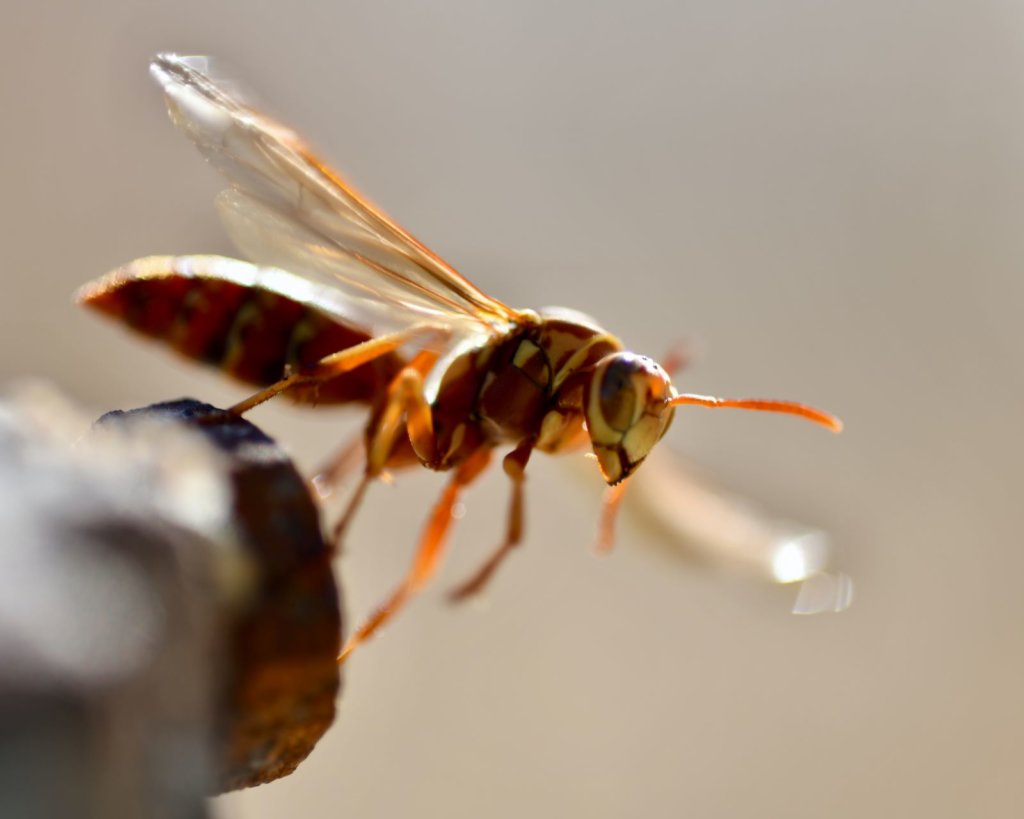
Not *quite* a murder hornet, but it’s a hornet. Photo by Duncan Sanchez on Unsplash
I notice in myself one part of me is terrified of getting COVID-19 because I assume it will be terrible and maybe I’ll kill someone because I’ve spread it to them, and then another part reminds me that may not happen. It could, that’s why I’m being cautious, but the vast majority of people who contract COVID-19 recover. WebMD says the recovery rate is anywhere between 97% and 99.5%. Our bodies for the most part know how to fight this virus. Not without consequences of course because some people have lung damage or brain damage as a result of the virus, according to the BBC. But still, mostly we’ve got this.
Do I think we should throw caution to the wind and return to the way things were pre-pandemic? No, because even if the death rate is 1%, when you take into account the size of the population, that can still be a lot of deaths. The United States is a perfect example of that. My spiritual teacher says, “Those who are reluctant to adapt themselves to the changed circumstances are doomed to destruction.” Yep. Pretty much. We can’t pretend our circumstances have remained the same, and at the same time, we must also recognize that we can, have, and will adapt.
My spiritual teacher also says, “You should always remember that you are in a world of passing shows, moving panorama. No picture, no position, no stance shall remain as they are just at present. That is, everything will change, everything is to undergo changes, and you should be ready to adapt yourself, to adjust yourself with those changed phases.”
My experience from this weekend shows me that we as a society, for the most part, are ready to adapt to changed phases. We adjust our actions and reactions because we as a species seek to survive. If we don’t adapt, we die, like the European honey bees who have no defense against murder hornets. I, for one, am willing to change and I hope you are too.
I dream of a world where we understand we have to adapt to circumstances in order to survive. A world where we realize nothing stays the same and we must constantly adjust accordingly. A world where we trust in our nature to fight against threats and realize adapting is what we do.
Another world is not only possible, it’s probable.
You know the saying, “History doesn’t repeat itself but it often rhymes”? I’m finding that to be true. We’re currently rhyming not only with the 1960s, but also the 1860s. That may sound strange for me to say. How is what the U.S. is going through now anything like the Civil War era?
I’d say we’re already engaged in another civil war, albeit nontraditionally. We don’t have troops marching against one another, but we’re already seeing a fight pitting brother against brother, sister against sister, and sibling against sibling for people who identify as nonbinary. We’re fighting online, in homes, on the streets. We’re fighting with words, and actions, and yes, also guns.
This civil war, like all civil wars, is a battle between the oppressed and the oppressor. For this civil war though, there are no discernible uniforms. It’s harder to identify who’s on what side. Amy Cooper, the woman who called the cops on Christian Cooper in New York City, identifies as a liberal. At least it seems that way given her campaign contributions. It’s not so easy to say Democrats are social justice warriors and Republicans only care about themselves. It’s also not so easy to say if you’re a person of color you’re automatically fighting for justice because one only has to look at the discriminatory policies Ben Carson supports in order to see that’s not true.
A key difference with this civil war though? There is no “North” to escape to. There is no place in the U.S. where people of color have true freedom. George Floyd was killed in Minnesota. So was Philando Castile. “Barbecue Becky” called police on black men barbecuing in my own state of California. These days we’re fighting for a metaphorical North. I say “we” because even though I’m not a person of color, I still have a stake in the game.
The Reverend Dr. Martin Luther King Jr. famously said, “No one is free until we’re all free.” I agree. My freedom, my ability to thrive in this world, is dependent on others being able to do the same. It’s part of why I mentioned in my last post that collective welfare is more important than individual welfare. We can relate that to this ongoing pandemic: If I contract COVID-19, I can spread it to other people. Your health is dependent on my health. That’s why we’re staying at home right now.
If you want another example, when more women work, economies grow, according to the United Nations. If female employment rates in more countries matched that of Sweden, it could boost gross domestic product by more than $6 trillion, the UN said. However, gender gaps cost the economy 15% of gross domestic product.
What would the world look like if people of color were allowed to thrive? What kind of contributions would they be able to make if they didn’t have to work so darn hard just to live? If they didn’t have to be in fear all the time? If they could operate in the world like, well, the average white person?
That’s the world I’m not only dreaming of, but fighting for. I’m not on the streets because my nervous system can’t handle it, but I’m contributing when, where, and how I can. And until that world exists, I’ll continue to fight for it and also dream of it.
I dream of a world where everyone is allowed to thrive no matter their race, ethnicity, gender, sexual orientation, or religion. A world where people can express the fullest, truest versions of themselves without fear. A world where we stand up for one another knowing we’re all interconnected.
Another world is not only possible, it’s probable.
I’m upset right now. I’m upset by callousness, by selfishness, and the expression of various -isms (racism, classism, antisemitism, etc.). It hurts my heart to hear people say things like, “All homeless people should be euthanized for their own good,” or “I don’t care if other people suffer because I’m fine.” Someone on my Facebook feed even said, “I don’t like Jews. They’re not trustworthy.” As a Jewish woman, that one in particular hit home.
I’ve literally cried about all of these statements. I have so much grief that people can be this mean. My first impulse is to argue, to point out statistics and news articles that counter the person’s point of view. However, as you likely already know, that doesn’t work. That’s why there are so many memes about how arguing on the internet accomplishes nothing. If anything, once you start arguing with someone, they only become more entrenched in their point of view.
I brought all of this sorrow to my meditation, holding the question, “What can I do about all of this?” and the answer that came back was the peace prayer that is often misattributed to St. Francis. I’m sharing it in full here:
Lord, make me an instrument of your peace.
Where there is hatred, let me bring love.
Where there is offense, let me bring pardon.
Where there is discord, let me bring union.
Where there is error, let me bring truth.
Where there is doubt, let me bring faith.
Where there is despair, let me bring hope.
Where there is darkness, let me bring your light.
Where there is sadness, let me bring joy.
O Master, let me not seek as much
to be consoled as to console,
to be understood as to understand,
to be loved as to love,
for it is in giving that one receives,
it is in self-forgetting that one finds,
it is in pardoning that one is pardoned,
it is in dying that one is raised to eternal life.
We see that this sentiment works. It’s the story of former KKK Grand Dragon Ken Parker who left the group after repeated encounters with people who he used to consider his enemies. It’s the story of ex-KKK member Chris Buckley who befriended Dr. Heval Kelli, a cardiologist, civil rights activist, and oh yeah, a Muslim.
It’s also in line with my spiritual philosophy. My teacher said genuine love for humanity is the only way to solve problems great and small.
“This love will give people guidance; it will show them what to do and what not to do,” he said. “It is not necessary to study great numbers of books or to rely upon those who speculate with the future of the silent masses. The only essential requirement is to look upon humanity with genuine sympathy.”
That feels both easy and difficult right now. I have lots of sympathy for marginalized groups, but not so much for people who are antisemitic, for instance. However, I know that people who have been hurt themselves hurt other people. This woman who said Jews aren’t trustworthy is also coming from a place of wounding, and me railing against her will only calcify her opinion that Jews are terrible. The best thing I can do for anyone is continue to love them, to show them kindness, and remind them we aren’t so different after all.
I dream of a world where we embody the peace prayer as much as we can. A world where we sow love instead of hate. A world where we bring harmony in the time of discord. A world where we bring light into darkness. A world where we become the type of person we want others to be.
Another world is not only possible, it’s probable.
Maybe a month ago, I noticed one of my succulents had a wilted leaf. I tugged it off and instead of merely removing the leaf, I managed to tear the stem of the plant nearly in two. As you can see in the picture below, this succulent started leaning like the Tower of Pisa. I propped a piece of cloth under the repurposed jar housing the succulent to force the stem halves to touch. I hoped the contact would encourage the stem to grow back together.
I’ve been watching this succulent like a concerned mother hen, tracking any and all changes. Recently I noticed a root growing out of the ripped stem, dangling in thin air, which you can also spot in the picture. If that wasn’t enough, the place where I pulled off the wilted leaf is now growing a whole new succulent rosette. I’ve posted a picture of that below.
I’ve written about adversity and overcoming obstacles many times, but witnessing this succulent demonstrates to me not only are living beings capable of overcoming obstacles, sometimes they can thrive because of them.
Usually when I think about resilience, I picture band aids and casts. That is, covering and supporting the wound and moving ahead, even if it’s a little more difficult. Or I imagine a dented car – it still runs, but doesn’t look as pretty. But this succulent is encouraging me to reframe resilience. Maybe resilience can mean not only surviving, but thriving. The little baby rosette would never have appeared if I hadn’t made space for it by removing a leaf.
It has me wonder, what is COVID-19 making space for both individually and collectively? What is happening right now that otherwise would not? Friends of mine are writing more, starting standup comedy routines, growing gardens, connecting with their neighbors. They’re moving their businesses online and making more money than they did before the pandemic. Some of these occurrences are rare, I acknowledge that. Not everyone is making more money now than they did prior to the pandemic. But even people who are struggling, are they connecting to people they otherwise would not have?
As a society, what changes will occur as a result of this pandemic? Starting this month in Paris, some of the city’s busiest streets will be reserved for cyclists to limit crowds on public transport. Some streets will be pedestrian-only. And it’s not just Paris – some Paris suburbs are announcing plans for bike lanes as well. The mayor of Paris wants the changes to become permanent, which could do a lot in terms of air pollution for the city. I would argue that’s an example of thriving as a result of COVID-19 and not merely surviving. What else could change for the better?
I dream of a world where we recognize we can not only survive hardship, but thrive as a result of it. A world where we recognize sometimes difficulties make space for something to bloom that otherwise would not have. A world where we use this crisis as an opportunity to change for the better. A world where we follow the Tao of the succulent.
Another world is not only possible, it’s probable.
Something I find fascinating about this time period is I think almost everyone feels powerless to some degree. That could be because they’re unsure whether they’ll contract COVID-19, or if their loved ones will die. People may be feeling powerless over what’s happening with the economy, or the fact they’re living under quarantine. Powerlessness could also arise over something as small as being able to buy butter and flour.
It’s interesting to notice how people are responding to that powerlessness. Some folks are diving into substances like food and alcohol. Others are chafing against the stay-at-home order and instead clamoring to reopen their state. The anti-quarantine folks remind me of early American revolutionaries in some respects, but also I think they’ve lost touch with why we revolted in the first place.
If you look back at American history, King George III heavily taxed the colonists to refill the British coffers after winning the French and Indian War. The colonists were taxed without representation and pissed about it, eventually defying the government and revolting. We revolted against an unjust, inequitable system that benefited the wealthy elite an ocean away.
These days, the people who are defying government orders seem to think they’re tapping into the American spirit that values freedom, but in actuality, they’re putting themselves and others in harm’s way. If we take a look at who’s benefiting from this pandemic right now, it’s again the wealthy elite. But instead of being tied to the government, these days the wealthy elite are tied to corporations. In an era when corporations are considered people, they are the ones being protected through this pandemic, not you and me. You and I are left to flounder, to figure it out on our own. Again, for me that harkens back to revolutionary times, which is fitting at least from an astrological perspective.
The U.S. is undergoing its Pluto return. What that means is Pluto is in the same position it was when the country was founded. A positive use of Plutonic energy is a greater sense of empowerment, strengthening will, and transformation. A negative use of that energy is power struggles with dominating individuals or institutions, a clash of wills, and destruction.
The last time Pluto was in this position, a mentally ill man (King George III) ruled over the U.S. and exploited its citizens for his own gain. I’d argue we’re seeing another mentally ill man rule over the U.S. and exploit its citizens for his own gain. While it’s easy to feel disheartened by everything happening, and believe me, sometimes I do, this period is also an opportunity.
We have a chance for rebirth and transformation. A chance to really live the values this country was founded on: life, liberty, and the pursuit of happiness. And instead of those tenets only applying to wealthy white men, they can apply to everyone. This is our chance to create a country that values and supports all people. This is our time to honor real happiness that isn’t tied to material gain at the expense of the planet. To live in harmony with all living beings. This is our time to evolve into a better version of ourselves, our country, and our planet.
I dream of a world where we wrest power from the powerful and create a more just society. A world where every person is allowed life, liberty, and the pursuit of happiness. A world where we respect not only each other but all living beings. A world where we also act as stewards for the planet itself and enact a planetary revolution.
Another world is not only possible, it’s probable.
The other day a close friend remarked as a society we have decided we will do anything to save a human life, which is both true and not true. It’s true that we are physically distancing, that we’re staying at home, that many businesses are closed due to COVID-19 because we want to save lives, but at the same time in the U.S. anyway we’re seeing the total opposite: valuing capital above all else.
Lieutenant Governor of Texas Dan Patrick wants to reopen the state and said “there are more important things than living.” In March, he went on Fox News and said “lots of grandparents” would rather die than see the U.S. economy suffer. Also, senior citizens should “take a chance on survival” for the good of the Dow Jones. He’s not alone – Rep. Trey Hollingsworth, R-Ind., said that deaths due to COVID-19 were “the lesser of these two evils” compared with a failing economy. In some ways he’s right because we don’t know how many people will die because they’re out of work, they’re starving, they’re killed by domestic violence, or afraid to go to the hospital because of COVID-19. It’s a tricky life-and-death balance for sure, but all of it I think speaks to our flawed capitalistic systems.
An article in Common Dreams said whether Americans know it or not, the government is working on behalf of capital. This is evident because the government is prioritizing the health of corporate balance sheets rather than human bodies. We know this because for the most part people are going on unemployment benefits rather than remaining on existing payrolls. We know this because we ran out of federal relief money for small businesses but not big businesses.
I keep thinking about something a finance professor at a prestigious university said to me years ago: capitalism requires an economic underclass. In order for capitalism to function, someone has to get the short end of the stick. It seems to me we’re reaching a point where the vast majority of people are in the economic underclass. I want to acknowledge some people are really, really in the underclass. Some people are suffering FAR more than others, but even people who perhaps felt comfortable before the pandemic are feeling the economic pinch now.
I said this to my neighbor a few weeks ago, but I’m reminded of Marie Antoinette, the last queen of France before the French Revolution. It’s a myth that she said, “Let them eat cake” in response to people clamoring for bread, but the sentiment is alive and well. Las Vegas Mayor Carolyn Goodman wants to reopen the city’s casinos, hotels, and stadiums, but when asked if she’d be willing to spend nights on casino floors alongside other visitors, she evaded the question and then replied, “First of all, I have a family.” How very out of touch.
What am I building to here? It seems to me we’re on the cusp of a revolution. How much more suffering do we have to endure before we say enough is enough? My spiritual teacher said, “The inevitable consequence of exploitation is revolution. When the merchants, maddened with excessive greed, lose their common sense completely and forsake their humanity totally, then the opportune time has come [for revolution] …. Revolution takes place when, from the economic perspective, only two classes remain in society: the exploiters and the exploited.”
Sounds to me like we’re there. I’m ready for the revolution y’all. I’m ready for a world that guarantees basic necessities. A world that no longer operates on the false principle that anyone can become rich if they only work hard enough. A world that puts greed in check and limits how much wealth one person can accumulate. A world where we put a stop to exploitation and value living beings for how precious they truly are.
Another world is not only possible, it’s probable.
The other day I learned the word “apocalypse” comes from Greek and it means to uncover or reveal. Well that certainly puts things in perspective, doesn’t it? I know the connation of apocalypse is doom and gloom, “We’re all going to die,” “The world is ending,” etc., but what if we returned to the root meaning? What if we considered apocalypses are instead times to reveal what’s not working both personally and collectively?
From that lens, we’ve survived many apocalypses. That’s not to say each apocalypse hasn’t brought its own special brand of suffering and death, because it has. I also don’t want to seem Pollyanna-ish here. I woke up this morning feeling gloomy because I know some people are not only dying from COVID-19, they’re also dying from starvation, or stuck in abusive situations at home, or falling into despair. I feel personal grief as well as collective grief. At the same time, this apocalypse is very revealing.
It’s revealing disparity, corruption, and broken systems. However, it’s also revealing kindness, compassion, and care. What’s working in our own lives? Who can we rely on right now? Where are we finding support? We’re discovering all of that as well. We’re becoming aware of what’s working and what’s not working. Something that I’ve learned over and over again is awareness is a point of power. You can’t change anything until you first know it’s there. That’s what this apocalyptic time is doing for us: bringing awareness to pretty much every facet of our individual and collective lives.
In the spirit of awareness as a point of power, I want to mention four possible futures as a result of COVID-19 according to my friend Sohail Inayatullah who is a professional futurist. In a recent YouTube talk, he presents four possible scenarios: the Horrifying Future, the Needed Pause, the Great Health Awakening, and the Great Despair.
In the Horrifying Future, there’s a feeling of dread and angst. The individual feels like they can’t control anything. We experience a recession or depression.
In the Needed Pause, the next year is difficult. Everything is slower than it was before. All conferences and sporting events are canceled. We’re stuck at home and doing slower things like breathing, yoga, and meditation. Then next year life will return to normal and we’ll have business as usual.
In the Global Health Awakening, this pause fundamentally changes who we are and how we show up in the world. There are changes to global health systems and the global world economy such that we start taking care of the planet and of each other in better ways.
In the Great Despair, none of our efforts succeed, the virus comes back, and there’s danger everywhere. The stimulus packages work temporarily and then create hyperinflation. Nation states split or fracture.
All of those seem possible to me! How do we use this apocalypse to create a better world? Inayatullah says part of it is understanding wellness and wellbeing are no longer just interesting ideas, they’re vital necessities. It also helps to change the metaphor of our lives to ask who do we want to be? For instance, instead of feeling like a headless chicken, perhaps the metaphor we start using is that we’re a wise owl calmly responding to life. Or perhaps we think of ourselves as a fast cheetah, able to move swiftly in any situation.
Personally, I don’t want to keep feeling like a headless chicken, running around frantically and feeling out of control. I’d much rather contribute to the Global Health Awakening by being a wise owl, taking precautions and acting with intention. I want to help myself and my community create a world that’s more wholistic, more caring. A world that takes into account the needs of individuals as well as the collective. A world that understands the collective is what saves us, what we must rely on to thrive. A world where we each do what we can to create that bright future.
Another world is not only possible, it’s probable.
As people all over the world celebrate, or recently celebrated Passover and Easter, I think about how both of those stories have never felt more relevant. To jog your memory, Passover is the story of Moses, the burning bush, and the 10 commandments. What I want to focus on in this post is the part where Moses commanded the Egyptian Pharaoh of the time to let the enslaved Jews go free and the Pharaoh refused. As retribution, God delivered 10 plagues. I’m not going to relay the whole story (you can read the rest here), but if I had to sum up the story of Passover, it’s about escaping plagues and seeking freedom.
It’s interesting to me the Hebrew word for Egypt, Mitzrayim, also means narrow spaces. I find that especially symbolic right now as we’re all in this global pandemic and under quarantine. We’re in a tight, narrow space, but Passover is the story of moving through that, of fleeing into freedom.
Easter has a similar story of freedom. The way I’ve heard author Glennon Doyle characterize Easter is it’s a story of pain (i.e., the crucifixion), then the waiting (when Jesus was in a cave), and then the rising (when he resurrected). We are collectively in the waiting place, waiting for the rising, metaphorically speaking. We’re also collectively in the tight, narrow space, as we are besieged by the COVID-19 plague.
These holidays remind us of the deep, dark, painful things that happen to us in life, sometimes personally and sometimes in society, as well as the relief from no longer being there. These holidays celebrate the thrill of leaving those narrow spaces behind and being able to roam free. Passover and Easter are holidays that celebrate hope and courage without omitting the pain. We will eventually reach the promised land, so to speak, not without cost, but it will come.
I also think about a quote I repeat regularly from my spiritual teacher who said, “Difficulties can never be greater than your capacity to solve them.” Right now our difficulties may feel insurmountable, but the holidays many of us are celebrating remind us that’s not true. The holidays remind us it can take a while, a long, long while, but eventually liberation happens.
It’s premature to celebrate just yet, but I know it’s coming. That little bit of hope is what keeps me going. I want to know what’s on the other side of all this. Don’t you? How will I be changed and how will society be changed? Right now we don’t know yet because we’re in the middle of the story, but oh my goodness, I can’t wait to find out what’s next.
I dream of a world where we remember no matter what we’re going through, eventually it will pass. A world where we remember we, too, will be liberated from our narrow spaces at some point. A world where we take heart in stories from the past and use them as fuel for the future.
Another world is not only possible, it’s probable.
The other day I watched a facebook video from evolutionary astrologer David Yarrow Wood. He spoke about the current transit we’re all experiencing – Saturn conjunct Pluto. He said Pluto brings up fears so we can see through them, so we can no longer be motivated by them. That line. As soon as he said it, I paused the video to cry a little.
It’s similar to what I wrote more than a month ago about life now belonging to love and anything being possible. This process of learning a new way of being started for me before the pandemic, but COVID-19 is upping the ante. I am learning to no longer be motivated by my fears. It’s hard though because I have a lot of fears and so does the worldwide society. One only has to go to the grocery store to see that. Fear is motivating people to buy toilet paper like they’re preparing for a three-month blizzard. Fear is motivating people to buy guns in higher numbers than they did months prior.
I’m afraid and you’re afraid – with good reason. The world is scary right now. I get it. And I also understand the world is scarier for some people than it is for others. That’s real. And, I ask myself what would it be like to be motivated by something other than fear? What if I wasn’t motivated by scarcity and shame? What if I approached life from a place of ease and trust and care? That may sound naïve right now when we’re in a state of emergency, but I can’t help but think life would be better for all of us if we did.
Like I said, people are hoarding supplies, which causes less supply, which causes more hoarding. If instead we all bought two weeks’ worth of what we need, would we be seeing so many empty shelves? If we operated from a place of ease and grace, would our experience be different? I think so.
And it is different in different places. In other countries people continue to have healthcare. Or the government is paying everyone’s salary. Or the virus has been contained more effectively. In countries that think of the collective, that have systems to fall back on, the predominant feeling is “We’ll weather this storm,” rather than the sense we’ve been thrust into a war for which we’re ill-prepared. There’s more sense of trust and that’s something I want on a personal level too.
Because life continues, my neighbor is moving out May 1st (p.s., do you want to be my neighbor?). I’m worried about who will move in next. Fear turns me into a tornado, whirling around, spinning and spinning in my head. But that’s not particularly helpful because the reality is the right neighbor has already been selected on the cosmic level. The person who’s supposed to be there will be there. If I instead trusted the universe, I would surrender and offer it up to the divine. I would do my part emailing friends and posting the news to facebook, but then I would let go, knowing I’ll be alright. Knowing that I can handle what comes next. And that’s a wish I have for all of us.
I dream of a world where we take inspired action and then surrender the outcome. A world where we operate with a bit more trust and faith in the universe. A world where we understand we’re a part of a cosmic dance and we’re not meant to lead – we’re meant to follow. A world where we welcome a new way.
Another world is not only possible, it’s probable.
